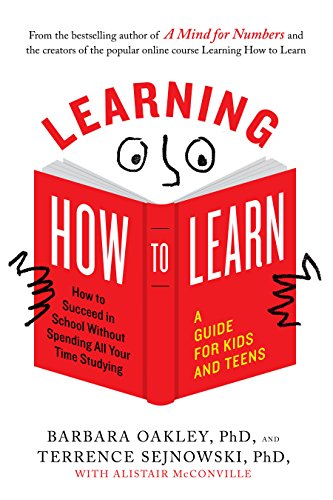Learning How to Learn: How to Succeed in School Without Spending All Your Time Studying; A Guide for Kids and Teens Link to heading
Summary Link to heading
“Learning How to Learn” is a practical guide designed to help kids and teens optimize their learning processes. The authors, Barbara Oakley, Terrence Sejnowski, and Alistair McConville, focus on providing strategies that improve study habits and learning efficiency without overwhelming students. The book covers various concepts from cognitive science and psychology, presenting them in an accessible format aimed to empower young readers. Topics include understanding how the brain works, learning styles, procrastination, memory techniques, and more. The book emphasizes applying these strategies to make learning enjoyable and less time-consuming.
Review Link to heading
The book has been well-received for its approachable language and engaging presentation, making complex scientific ideas understandable for a younger audience. One of its strengths is breaking down sophisticated cognitive principles into actionable steps that students can integrate into their study routines. The authors’ combined expertise offers a credible and insightful perspective. However, some critiques mention that while the advice is practical, implementing all strategies might require guidance or additional support, especially for self-motivated learners. Nevertheless, it serves as a helpful resource for students seeking to enhance their academic performance efficiently.
Key Takeaways Link to heading
- Chunking: Break study material into smaller, manageable parts to enhance understanding and retention.
- Focused and Diffuse Thinking: Utilize both focused attention and relaxed thinking to solve problems and assimilate information.
- Memory Techniques: Apply methods such as active recall and spaced repetition to strengthen memory retention.
- Procrastination Solutions: Develop habits that minimize procrastination and promote consistent study practices.
- Growth Mindset: Embrace challenges and view failure as a valuable component of the learning process.
Recommendation Link to heading
“Learning How to Learn” is particularly recommended for students in middle school to high school who are looking to improve their study efficiency and enjoy learning. Educators and parents may also find it a valuable tool to support students’ academic journeys. The book is ideal for those who wish to understand the ‘why’ behind learning strategies and are interested in cognitive science insights into educational practices.
